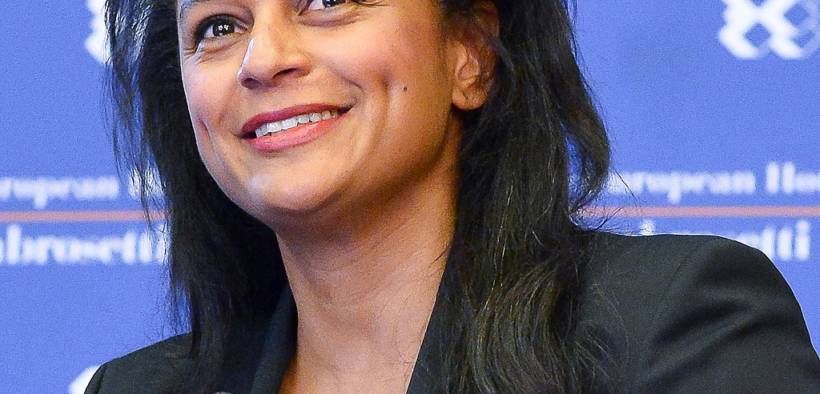Luanda Leaks Reveal how Isabel dos Santos Robbed Angola

The International Consortium of Investigative Journalists published a tranche of documents implicating Africa’s richest women in mismanagement of Angola’s state oil company.
Newly-leaked documents revealed Isabel dos Santos, daughter of former Angolan President José Eduardo dos Santos, allegedly siphoned government money into private, offshore accounts. The International Consortium of Investigative Journalists published 92 of 715,000 documents chronicling how dos Santos alleged pulled off the feat. Financial statements, loan agreements, emails, audits, and tax returns were provided to ICIJ alongside a broad range of supporting evidence, including emails, spreadsheets, and even organizational charts.
Dos Santos, Africa’s richest woman, denied any wrongdoing.
“I have built over 10 commercial companies in Angola. Companies in retail – so supermarkets, cinemas, shopping malls, media and telecoms … I have over 20,000 employees … I am one of Angola’s largest taxpayers … This is a politically motivated attack,” she said, according to Al Jazeera.
She accused the leaker as operating a “very concentrated attack” in coordination with foreign media and Angolan authorities. Dos Santos was a titan of Angolan industries as head of Sonangol, the state oil company, while also overseeing business operations in the telecommunications, banking, and construction sectors.
Untangling a Global Web
Her father served as the third president since Angola’s independence from Portugal for 38 years, before stepping down due to health concerns. José himself was never charged with corruption despite widespread allegations. He potentially played a role in empowering dos Santos after the Angolan parliament made it illegal for the president to have financial stakes in businesses. Consequently, he shifted much of his ownership and profits from his holdings to his children.
The Luanda Provincial Court seized her bank accounts and those of her husband on Dec. 30, 2019. Either sensing something was amiss or just taking a business trip, dos Santos made her way to Portugal before moving to the United Arab Emirates, which she has since claimed as her country of residence.
Angolan Attorney General Hélder Fernando Pitta Grós has led the effort to close in on dos Santos’ alleged financial crimes since 2018. A daunting task awaits as he attempts to bring dos Santos to trial in Angola. She has assets in Portugal, which he is trying to seize, but the case is further complicated by her dual-Russian nationality. Requests were sent to the Portuguese government to prevent dos Santos from transferring money out of Portugal and into Russia. She frequently travels to London as well, which makes tracking her and seizing her assets an atypical operation.
“We will use all possible means and activate international mechanisms to bring Isabel dos Santos back to the country,” prosecutor general Helder Pitra Gros said in a public radio broadcast.
Ignoring Red Flags
Given the considerable size of the leak — 356 gigabytes — ICIJ partnered with Quartz to use artificial intelligence to sort through it. Jeremy B. Merrill highlighted some of its initial findings, which included dos Santos’ strategy of buying ownership in banks to prevent an institutional crackdown and her ability to use fashion industry connections to boost her image. More importantly, the AI uncovered a slew of records from western financial firms that “played a role in legitimizing” her business dealings.
Al Jazeera blamed PwC and Boston Consulting Group for “apparently ignoring red flags.” They weren’t alone — McKinsey & Company, Ernst & Young, KPMG, and Deloitte were also implicated in the leaks, Eugene S. Robinson wrote for OZY. They too overlooked dos Santos’ shady dealings on account of her billionaire status and iconic image.
Dos Santos is reportedly worth $2 billion, half of which could be the money missing from Angola’s bank rolls. She is not alone in allegedly pulling off criminal misconduct at the expense of the Angolan government — her half brother, José Filomeno dos Santos, was charged in April 2018 for “fraud, misappropriation of funds, money laundering, and associating with criminals.” The Angolan Ministry of Finance said he had his eyes set on moving $1.5 billion of public money in three parts, Al Jazeera reported. The first transfer of $500 million was blocked by the UK, however.
Repercussions from the massive leak could spread worldwide given the international nature of the crimes. The complex web of dos Santos’ business relations and residency could see investigations launched by several state governments, including the US where major accounting firms turned a blind eye to obvious financial misdeeds.
Bringing dos Santos to trial, however, is another matter entirety. OZY reported she was in the UK when the documents were leaked and noted “that extradition from the UK is tremendously difficult — specifically if you’re a resident with major investments.”
No matter the country she chooses to face the battle, dos Santos is adamant she is innocent.
“The ICIJ report is based on many fake documents and false information, it is a coordinated political attack in coordinations with the ‘Angolan Government.’ 715 thousand documents read? Who believes that?” she tweeted following the leak.















